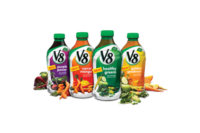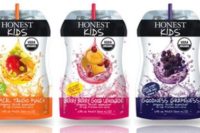Scientists Bemoan Fruit Juice
Two nutrition experts say consumers need to remember that otherwise healthy fruit juices and smoothies can be loaded with fructose sugar.

Fructose occurs naturally in fruits, but it is still a sugar -- and can be found in high levels in drinks that are often consumed between meals.
"Smoothies and fruit juice are the new danger," said Barry Popkin, a professor of nutrition at the University of North Carolina.
Popkin and fellow researcher George Bray told the British newspaper The Guardian they were disturbed at the latest sales pitch from beverage manufacturers who portray fruity drinks as a way to meet the minimum daily guideline for fruit and vegetable consumption.
"Pulped-up smoothies do nothing good for us but do give us the same amount of sugar as four to six oranges or a large coke," said Popkin. "It is deceiving."
A major problem, the researchers said, is that drinks don't fill people up like, for example, eating a piece of fruit. The result is downing a heavy dose of fructose between meals and still eating the same amount for lunch or dinner as they normally would.
Popkin and Bray, who publicly raised concerns about high-fructose corn syrup in soft drinks in 2004, suggested drinking more vegetable juices and eating an orange or an apple between meals.
Looking for a reprint of this article?
From high-res PDFs to custom plaques, order your copy today!





